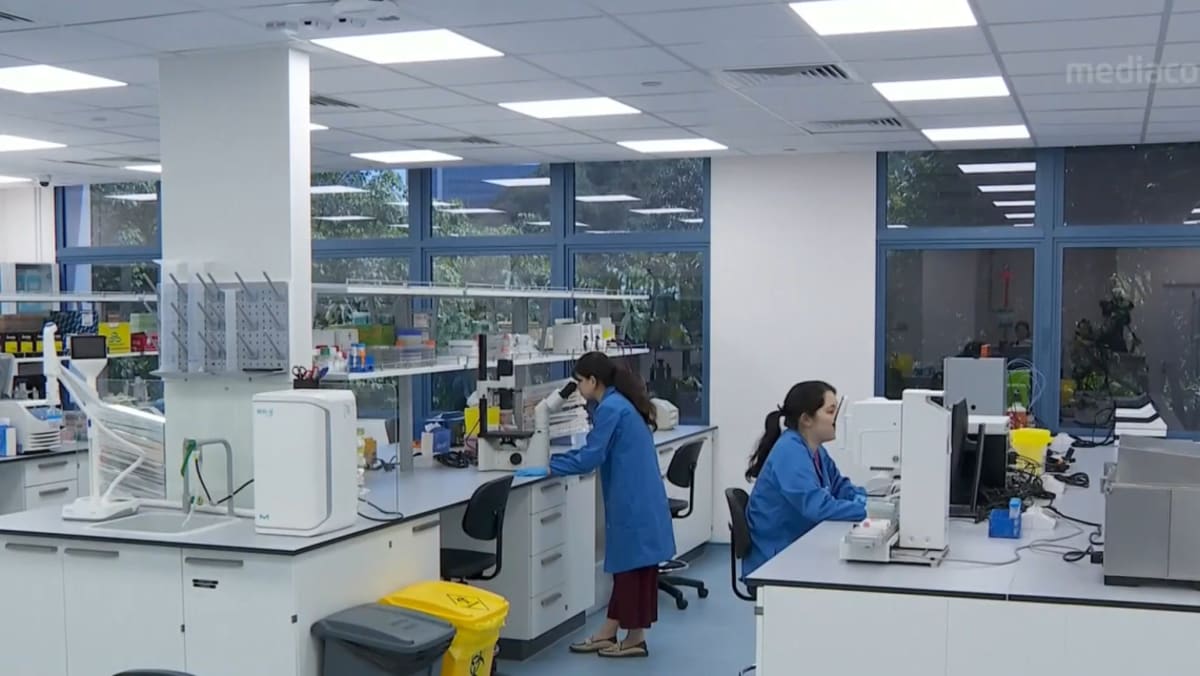Big investors pour funds into longevity research, accelerating growth in field
The focus on actual science to treat ageing has sparked a global rush attracting big money and big names.
Firms in the private sector recognise that with the world population at 8 billion currently, the “market is infinite”, said Professor Brian Kennedy, director of the Centre of Healthy Longevity under the National University Health System.
There are also potential interventions that might work and ways to measure their efficacy, said Prof Kennedy, who is also chief scientific officer at Regenosis.
“It’s probably the best way to improve quality of life and make a fortune at the same time. So, there’s a lot of private sector interest now. There’s still some challenges but I feel like that momentum will probably keep going,” he said.
Mr Lim noted that Asia’s medical wellness is a US$1.2 trillion industry which is expected to more than double in value by 2030.
“It is a very huge industry, with Asia Pacific actually having the fastest growth in the (number) of people getting old and therefore, has the highest demand,” he said.
USING AI FOR RESEARCH
Dr Zhavoronkov, whose company focuses on using artificial intelligence (AI) to identify novel drug targets for untreated diseases, has become a leading voice in cutting edge research on ageing and age-related disease.
A study he co-authored found that new tech can measure how just thinking old can make a person older.
“We have this new ability to track ageing rates through ageing clocks. My group has contributed considerably to the field of ageing clocks by applying advanced artificial intelligence to predict your biological age at every level and even psychological age because you’re also ageing on a psychological level,” he said.
“Some of that ageing happens faster in people who are living an unhealthy lifestyle, so you can possibly reverse some of those clocks that are very sensitive to lifestyle.”
DEVELOPING DRUGS TO STAVE OFF AGEING
As the discovery of novel therapeutics continues, a growing number of people are already experimenting with prescription drugs that could possibly stave off ageing.
The pharmacological interventions toolkit is “very limited”, Dr Zhavoronkov said. While some medicines may have life-extending effects, “we have not seen enough evidence that these drugs substantially increase life span”, he said.
The momentum among research teams in Asia to develop interventions at the laboratory level is however growing.
In 2021, a team of researchers from a Tokyo university developed a vaccine that can remove a type of cell behind ageing in mice.
These cells build up in humans too, and are sometimes referred to as zombie cells, because they do not die. Mice treated with the vaccine saw their senescent cells decrease.
“Technically, it is not so difficult to generate a human version of the senolytic vaccination. So, I hope that we can apply this treatment technique for humans within five or 10 years,” said Prof Tohru Minamino, chairman of the Department of Cardiovascular Biology and Medicine at Juntendo University Graduate School of Medicine.
“We have shown previously that ageing or metabolic stress promotes accumulation of senescent cells and various issues, thereby contributing to age-associated disease, such as arteriosclerosis, diabetes and dementia,” he added.
The technique may theoretically be able to stop the acceleration of the ageing process, Prof Minamino said.
Dr Zhavoronkov said people should be “very optimistic” about the future, he said, urging those in their 50s not to even consider retirement.
“You should continue investing in lifelong learning and career planning. Regardless of where you are, who you are, you should invest in yourself and you should have this very, very lengthy longevity horizon,” he said.
For all the latest business News Click Here

